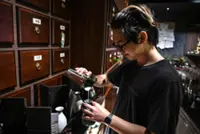Malaysian youth are a curious bunch, but they are still pretty ignorant when it comes to many sexual health matters.
Despite a twofold increase in youth engaging in sexual intercourse over the past six years (from 18.8% to 35.4%), a third do not know a woman can get pregnant the first time she has sex or during her period, and over one in five (22%) believe that mosquitoes can transmit sexually-transmitted infections (STIs)!





